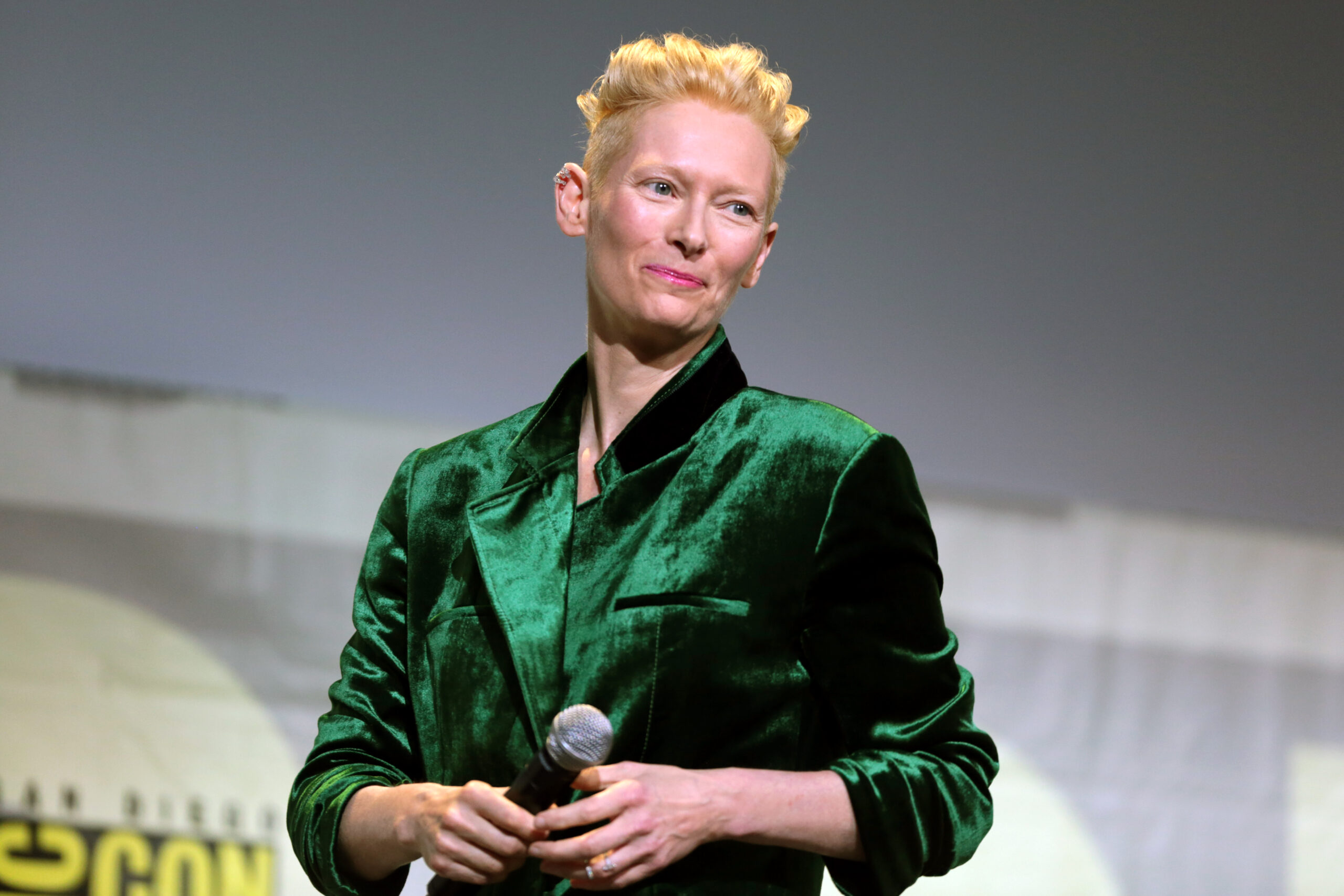Photo Credits – “Tilda Swinton” (CC BY-SA 2.0) by Gage Skidmore
Jean Luc Godard once said that, “A story should have a beginning, a middle and an end, but not necessarily in that order,” and it is from the perspective of this writer that “Three Thousand Years of Longing” is a film that is concerned primarily with story, but also with its titular emotion that everyone experiences: longing. It is also directed by the same guy who did the “Mad Max” movies, which will probably come as a shock to you as it did to me!
Directed by George Miller and starring Tilda Swinton and Idris Elba, “Three Thousand Years of Longing” follows Alithea Binnie (Swinton), an erudite but lonely professor of narratology, as she is in Istanbul on a lecture tour. While touring a bazaar with a colleague after giving a lecture, she picks up an ornate glass bottle from a shop she deciding to buy it on a whim. After opening it in her hotel room, she inadvertently releases an old and powerful djinn. The djinn (Elba) tells her he will grant her three wishes in exchange for his freedom. However, Alithea is skeptical, believing that the djinn is a trickster because of the stories surrounding djinns and initially refuses to make any wishes at all. To resolve her distrust, the djinn tells her the story of how he became trapped in the bottle and the stories of the people who possessed the bottle before she did.
The film itself is an adaptation of A. S. Byatt’s “The Djinn in the Nightingale’s Eye,” and while I cannot say whether or not this counts as an accurate recreation of the original story, I can say with confidence this movie is one of the most imaginative and creative films of the year! In genre terms, the film is technically romance, fantasy and drama, but it may be more accurate to say “Three Thousand Years of Longing” is a modern fairy tale that celebrates stories and the storm of emotions and feelings that make stories immortal.
Aside from the gorgeous cinematography and writing, the performances are wonderfully understated and moving. In some films, one actor easily steals the show, but here Tilda Swinton and Idris Elba shoulder this film equally. Elba’s acting as the djinn is compelling from beginning to end, with particular mention of his tragic relationships with his former masters Gülten (Ece Yüksel) and Zefir (Burcu Gölgedar). Meanwhile, Tilda Swinton’s acting is both poignant and engaging as she slowly comes to face her own loneliness and false happiness, and the chemistry she has with Elba’s character is engaging and heartfelt.
The film is beautifully well-made with regards to its excellent cinematography. John Seale displays the same level of intricate camerawork that he displayed with “Mad Max: Fury Road.” Every scene, especially with the Djinn’s flashbacks, are a treat to look at with the use of saturated colors complimented by the use of wide-angle and establishing shots that bring out the fantastical and storybook scenes such as the court of the Queen of Sheba and the palace of Suleiman the Magnificent.
The writing by director George Miller and Augusta Gore is the picture’s greatest strength, but also its weakest. The film itself is enchanting up until Alithea and the djinn arrive in London, at which point the film stumbles around before the end. It’s a shame because up until that moment in the third act, the film felt like it naturally flowed from one scene to the next without faltering. Aside from that one major fracture with the writing, the rest of the movie pulls the viewer in and immerses them in the story between Alithea and the djinn. Alithea begins as a dry academician, focused with her work on stories and how they have been reduced to “metaphors” in the wake of “painstaking science.” It is when the djinn begins his tale of how he was trapped for three millennia that helps Alithea rediscover the value inherent in stories. The djinn’s story of his longing for freedom from the bottle and his time with the people he knew before Alithea is engrossing, as the narrative explores his feelings of powerlessness but also Alithea’s revelations about her own longing for companionship she comes to realize over the course of the plot.
One other issue with the film is that it feels almost too short. The third act feels like it is in such a rush to get to the ending that it could have benefitted from an additional ten or 20 minutes of runtime. Despite these issues with the writing and runtime, “Three Thousand Years of Longing” is an imaginative and creative piece of cinema in an industry starving for both. If you’re looking for a charming story involving fantasy, romance and melodrama, I highly recommend you see this film!
Kelly Baker is an alumnus of West Chester University of Pennsylvania. EK924666@wcupa.edu


I really like Idris Elba’s dark personality. He is made to fit in many roles!